

Total War: Rome II is Creative Assembly's latest edition to their Total War strategy games series. This anticipated new addition is set to be released September 3, 2013. The playable factions represents the key powers of the time period. These factions include Greco-Roman, Barbarians, and Eastern cultures. While many of these factions will seem familiar to those that played the first Total War: Rome, Creative Assembly has retooled them for a supposedly deeper form of gameplay.
These factions each bring different strengths to this new game, some focus on military might, while others focus on domination through political or commercial power. Each faction will have different dilemmas to face on their road to world domination.

What with being the namesake of this game and al, it is only natural that Rome would be a playable faction within the game. It is recommended that new player start with a choice of Rome just to get a handle on how the game works.
Rome is a militaristic faction in which they depend on their organized and disciplined military to hold their vast empire. Light armored Hastati man the front lines, followed by the older warriors in heavier armor called the Triarii that hold the rear. Both ranks are supported by Equites, the roman cavalry.
Rome benefits from proficiency in metalwork which gives the faction an economic boost and enhanced military development. The government is Rome is separated into three influential families that vie for control of the senate—The Julia, The Cornelia, and the Junia. Through the senate players can manipulate public happiness in order to be successful in diplomacy. however, balancing your families power in the senate is as crucial as victory on the battlefield. If the players family gains too much power, they will be subject to assassinations. However, if a rival family gains too much power, the government may be subject to revolution and upheaval.
Roman Culture Perks
Bread and Circuses: +1 food in all provinces
Roman Legions: +1 XP for all Roman infantry units recruited
House Cornelia Perks
Administrators: +3% tax rates
Disdain for Plebs: Public order penalties from Latin culture
Philhellenes: Diplomatic bonus with Hellenistic factions
House Julia Perks
Cultural Oppressors: +25% public order penalties due to the presence of a foreign culture
Romanisation: +4 to cultural conversion
Barbarian Subduers: +10% morale when fighting Barbarian factions
House Junia Perks
Founding Fathers: Public order bonus from the presence of Latin culture
Political underdogs: Diplomatic penalties with all other factions
Agrarian Wisdom: +10%wealth from agricultural buildings

Carthage enjoys a commercial treaty with Rome after their alliance in the Pyrrhic War. The war was more favorable for Rome as they gained control over the Italian peninsula, but Carthage gained a foothold in Sicily. Now the tensions between the two nations are running high.
Because of their coastal location, Carthage benefits from warfare on the sea as well as seafaring trade. However, their land army is nothing to sneeze at with the ability to create war elephants. This faction is also a democracy, which gives them a bonus to public happiness. However, like Rome players who choose this faction also have a choice of playing as one of three major political powers—Hanonid, Magonid, and the Barcid. Each of which have unique economical and political benefits.
Carthage Culture Perks
Phoenician Trade Heritage: +10% wealth from all commercial buildings
Mercenary Armies: -40% upkeep on mercenary units
Hanonid Dynasty Perks
Military Underdogs: +10% costs on all non-mercenary units
Statesmen: Diplomatic bonus with all factions
Pioneers: +10% movement range
Magonid Dynasty Perks
Iron Fist: -20% resistance to foreign occupation
Corruption: -6% tax rate
Military Reforms: -5% upkeep for all non-mercenary units
Barcid Dynasty Perks
Popular Support: Public order bonus from the presence of Punic culture
Punic faith: Diplomatic penalty with all factions
Agricultural Reform: +5% wealth from agricultural buildings

After the death of Alexander the Great, Macedon struggles to regain the power and reputation that the legendary leader once bestowed on it. However, they now enjoy a military advantage when facing other Hellenistic factions and barbarian tribes. Since the land of the Macedonian empire is rich in resources, they enjoy many profitable trading possibilities.
While Macedon is one of the strongest Hellenistic powers and enjoys both a strong infantry and cavalry, they are a very weak naval power. They instead rely on Hellenistic allies for naval strength. However, the nation tends to favor imperialist tendencies, which makes forming alliances and trust with other nations more difficult.
Successor Kingdoms Perks
Alexander's Legacy: -20% resistance to foreign occupation
Successor Conflicts: +10% morale when fighting against Hellenistic cultures
Macedon Perks:
Commercial Contract Leases: +10% wealth from industrial buildings
Barbarian Subduers: +10% morale against Barbarian factions
Hellenic Rivalry: Diplomatic penalty against Hellenic factions

Iceni is a may seem like simple barbarians, but they are far from it. This economy is based on agriculture, but this faction thrives from warfare. They charge into battle with large oval shields and war paint after channeling fury and power from the Goddess Andraste. While they favor light infantry, the Iceni are infamous for their use of maneuverable war chariots that harry enemy troops with javelins.
Due to their warrior society, this faction gains a bonus to public happiness with each new war that is declared. They also have an economy that thrives on their mastery of iron. however, much of their wealth comes from raiding other factions.
Britannic Tribes Culture Perks
Fierce Independence: +10% melee defense when fighting on home or allied territories
Warrior Society: +1 public order for all wars started with a neighboring faction
Iceni Perks
Children of Andraste: +10% bonus to charge for all units
Cultural Aspirations: Diplomatic bonus to all non-Barbarian factions
No Quarter: -50% to number of battle captives

Like the Iceni of Britain, the Arverni are the barbarian tribes of Gaul. They have long harried Rome and other more structured societies with their military might. Like the Iceni, they are also strongly dependant on infantry troops, utilizing both javelins and the strong might of the charge in battle with their elite warriors like the Spear Noble and Oathsworn. However, their cavalry benefit from the Gallic horsemanship.
While many economical matters fall to the tribe's chieftains, many of the political matters are decided by the religious priests—the druids. This makes religion among the Arverni of greater importance than many of the other factions. Due to their success in battle, the Arverni are much respected by other barbarian tribes, making diplomatic matter easier.
Unlike the Iceni, the Arverni do not depend on raiding to amass wealth. Instead their artisans and expertise in gold working make the good their craftsmen produce valued around the world.
Gallic Tribes Culture Perks
Warrior Society: +1 public order for all wars started with a neighboring faction
Gallic Horsemenship: +1 XP for Cavalry units
Arverni Perks
Gallic Craftsmenship: +10% wealth for all industrial buildings
Internal Power Struggle: Public Order penalty due to the presence of Celt culture
Tribal Hegenonist: Diplomatic bonus with all Barbarian factions

The Suebi are a German tribe faction that masters the art of forest warfare and plunder. They rely on their infantry in which specializes on infantry tactics. however, what make their infantry special is that they use a framea, a javelin type spear, as swords are a rarity for the Suebi. While their infantry is often without any armor, they depend on their shields as a primary means of defense. Though without armor they may seem like a simple opponent but even the heavily armored Centurion of Rome trembles at a Berserker's charge.
The Suebi have a strong isolation policy, which makes wealth through trade a near impossibility. However, due to their prowess in combat diplomatic relations with barbarian tribes are a breeze. However, because of their disdain for anyone else beside themselves, they meet resistance when conquering other cultures.
Germanic Tribes Culture Perks
Warrior Society: +1 public order for all wars started with a neighboring faction
Marauders: +20% income from raiding and sacking
Suebi Perks
Disdain for Foreign Culture: +25% public order penalty due to foreign presence
Venerable Elders: +3% tax rate
Tribal Conflict: +10% morale against Barbarian factions

The Parthia are a confederation of difference tribes. These nomadic people are famed for their horses and their skilled horse archers and cavalry. What gives their cavalry an edge is the bronze armor their place upon their horses for a near impenetrable defense. Their infantry is relies on spearmen as well as sometimes mercenaries.
The Parthia's culture and religion is a combination of local Hellenistic cultures as well as invading Persian cultures. The trade among this faction thrives due to the emerging Silk road from the East, this makes their merchants able to move easily throughout the world. Due to their tolerance of foreign cultures, Parthia is easily able to accumulate other cultures via military conquest. However, the Zoroastrian religion has an aversion to slavery, which means a decrease to public order and economy.
Eastern Empire Culture Perks
Great Marksmanship: +1 XP to archers
Persian Trade Heritage: +10% wealth from all commercial buildings
Parthia Perks
Cavalry Master: +1 XP for Cavalry units
Zoroastrian Slavery Aversion: +25% to servile unrest
Multiculturalism: -25% public order penalty when a foreign culture is present

The intermingling of Egyptian and Greek cultures left after the sudden death of Alexander the Great has led to a unique Egyptian nation. Because of the creation of a Greco-Egyptian upper class, this has led to frequent and blood uprisings within the empire.
However, something good did come from this mingling. The Egyptian and Greek fighting style has led to a powerful and balanced military that make devastating use of the spear and pike against enemy cavalry, scythed chariots to harry enemy infantry, and the Egyptians can also call upon the might of war elephants. To their faction being a center point of trade within the Mediterranean, this faction also requires a strong naval might to protect its economic interests.
While they have a strong land and naval military power, the major downfall of this faction is the struggle between native Egyptians and the Greek government.
Successor Kingdoms Perks
Alexander's Legacy: -20% resistance to foreign occupation
Successor Conflicts: +10% morale when fighting against Hellenistic cultures
Egypt Perks:
Foreign Dynasty: +25% public order penalties due to the presence of a foreign culture
Naval Prowess: +1 XP to Ships
Ptolemaic Enlightenment: +10% to research rate

Pontus will be available day one through a free content update to the core Total War: Rome II game.
Pontus has remained one of the strongest Hellenistic states due to their control over prized commodities such as timber, precious metals, and valuable steel. This faction is infamous for being well informed, Pontus agents are perfectly placed to gather information on enemies and allies alike.
This progressive kingdom enjoys healthy diplomatic relations with Greek states and is skilled in battle against barbarian forces. However, due to their culture forsaking their Persian origins, the suffer diminished public order benefits within eastern cultures.
Eastern Empire Culture Perks
Great Marksmanship: +1 XP to archers
Persian Trade Heritage: +10% wealth from all commercial buildings
Pontus Perks
Barbarian Subduers: +10% morale when fighting Barbarian factions
Philhellenes: Diplomatic bonus with Hellenic factions
Forsaken persian Origins: Diplomatic penalties with Eastern factions

Available from the Greek States Culture Pack, included for those that preordered Total War: Rome II
Athens has long since been revered for their culture, from which Greek culture has majorly been defined from the contributions from the minds in Athens. During the Persian Wars, Athens put their faith in the might of naval strength. However now their infantry is majorly made up of mercenaries. Though the combination of spear bearing Hoplites, supported by archers their land units a formidable force.
While Macedonian rule majorly ended after the death of Alexander the Great, Athens has not yet totally broken free of them. However, now they face the opportunity to break free and become a major military force over friends and enemies. Because of their rich culture, Athens enjoys wealth of culture and economy which make conquests of foreign cities easier to convert. Though their naval strength is near unmatched, they sacrifice land military might to do so.
Greek States Culture Perks
Classical Heritage: +2 to cultural conversion
Fierce Independence: +10% melee defense when fighting on home or allied territories
Athens Perks
Military Decline: +10% non-mercenary recruitment costs
School of Hellas: +10% research rate
Naval prowess: +1 XP to Ships

Available from the Greek States Culture Pack, included for those that preordered Total War: Rome II
While the Epirus have a rich agricultural driven economy, the majority of their trade centers from their fishing ports along the Adriatic Sea. This faction had long since celebrated their alliance with Macedon after their princess married Phillip II and bore Alexander the Great. However, after his death they face choices. This faction is surrounded by large military powers, of which they must choose their enemies and allies wisely.
This nations focuses more on village life rather than city life, giving more income from smaller villages. They also are renowned for their commanders, making them more effective in battle. However, due to their past with other Hellenic factions, they suffer diplomatic penalties when conducting diplomacy with Greek states.
Greek States Culture Perks
Classical Heritage: +2 to cultural conversion
Fierce Independence: +10% melee defense when fighting on home or allied territories
Epirus Perks
Guardians of Dodona: Public order bonus due to the presence of Hellenic culture
Hellenic Mistrust: Diplomatic penalties with Hellenic factions
Village Confederation: +10% wealth from minor settlements

Available from the Greek States Culture Pack, included for those that preordered Total War: Rome II
Spartans are considered the mightiest warrior culture in all of Greece. While Athens kept slaves so they could pursue culture and the arts, Sparta relies on their slaves in order to attain warrior perfection. After the yoke of Macedon rule has been lifted, Sparta is not faced with an unclear path. They may now either ally themselves with Rome, as they did historically, or conquer former Alexandrian territories to regain their former glory.
While their military strength is unquestionably strong, the Spartans also suffer less public unhappiness due to slavery. Though due to their focus on military might, they do not gain as many benefits from natural resources.
Greek States Culture Perks
Classical Heritage: +2 to cultural conversion
Fierce Independence: +10% melee defense when fighting on home or allied territories
Spartan Perks
Spartan Warriors: +1 XP to Spartan infantry
Iaconi Austerity: -10% wealth from industrial and commercial buildings
Helot Repression: -25% servile unrest

Included in a Second DLC pack, release date yet to be announced.
After the power void left by the death of Alexander the Great the Seleucids were able to take advantage of this and expand their empire into Alexander's Eastern empire as well as Asia Minor. Due to this, their territory now contained a large variety of diverse cultures. These cultures have majorly been Hellenized leaving the Seleucids open to expand.
The Seleucids have little tolerance for the practice of slavery, due to their multicultural society they also suffer less from public order issues when foreign cultures enter their territory. Unlike other cultures, they do not have a specialized military, overall their military is balanced by has the perks of a variety of different cultures.
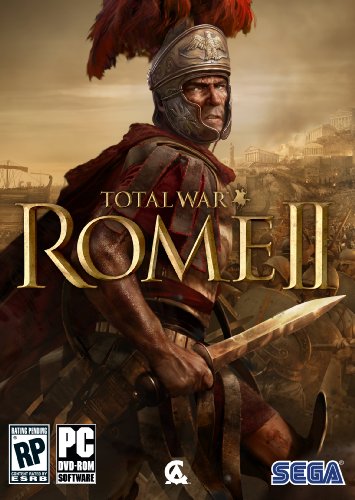 Total War: Rome II +$5 Credit [Download]
Total War: Rome II +$5 Credit [Download]

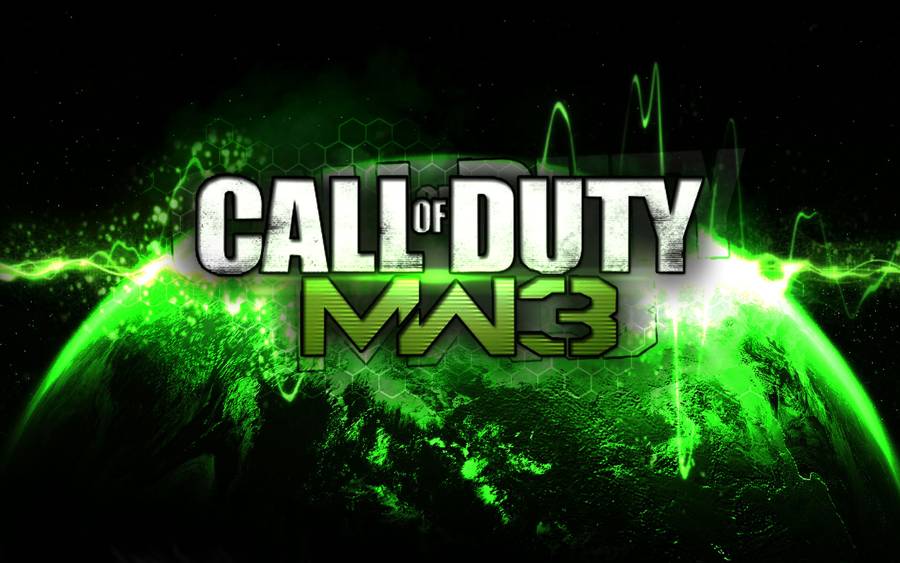

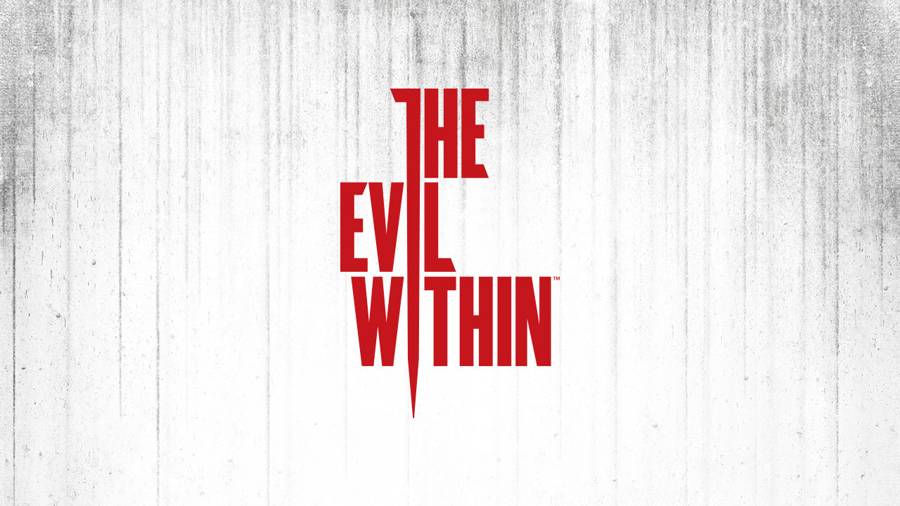 The Evil Within Weapon Location Guide
The Evil Within Weapon Location Guide Star Wars: The Old Republic Datacron Locations - Coruscant
Star Wars: The Old Republic Datacron Locations - Coruscant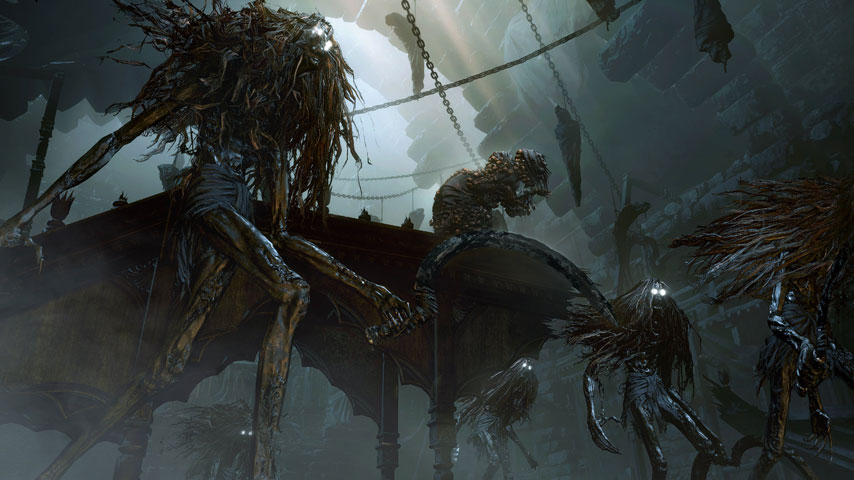 Bloodborne guide part 10: Witch of Hemwick boss battle (optional)
Bloodborne guide part 10: Witch of Hemwick boss battle (optional)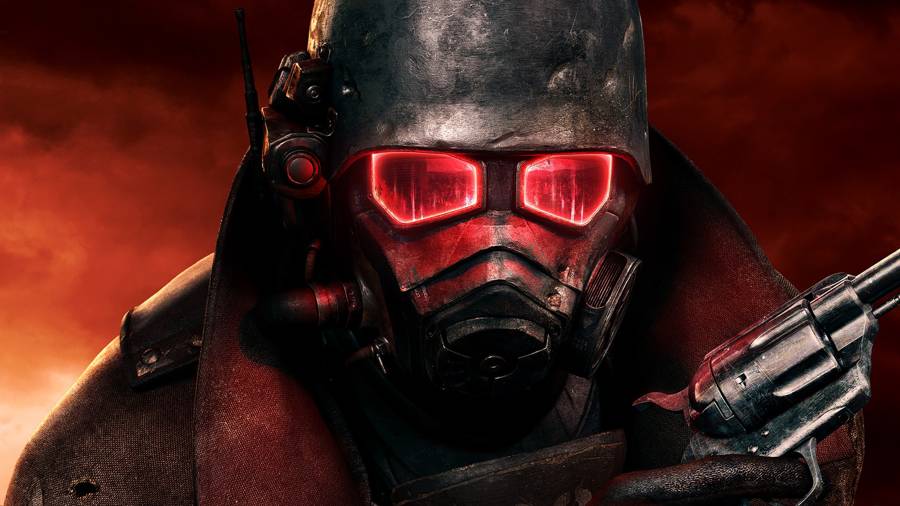 Fallout New Vegas Legendary Creatures Locations
Fallout New Vegas Legendary Creatures Locations Murdered Soul Suspect Cemetery Case Guide
Murdered Soul Suspect Cemetery Case Guide